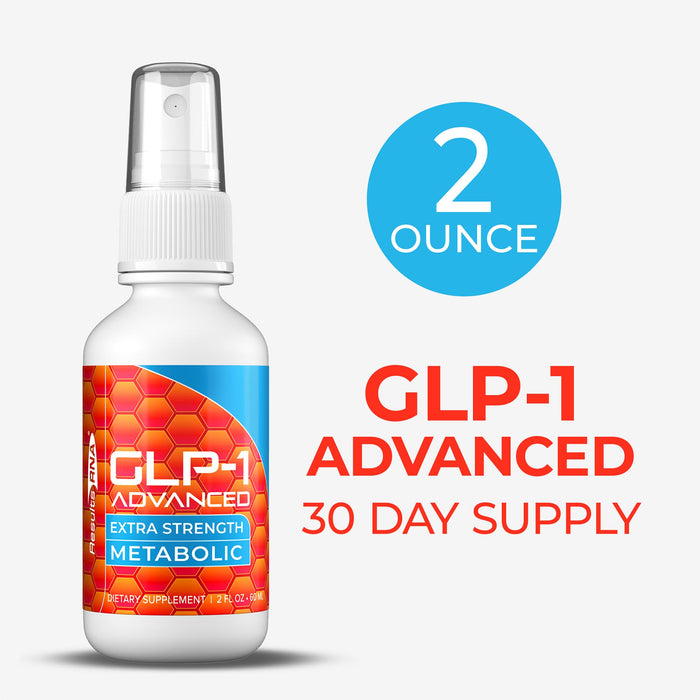
Subscription Price: (10% Off)
Controlling appetite is a fundamental part of weight management, metabolic balance, and long-term health. When hunger signals are strong or frequent, it becomes easier to overeat, choose high-calorie foods, or struggle with cravings. Effective appetite control supports sustained energy balance, less mood swings, and better blood sugar stability.
While lifestyle strategies (diet, sleep, exercise) are pillars, many people look for supplementary tools or compounds that may help modulate appetite in safe, evidence-informed ways. One emerging category of interest is supplements aiming to support GLP-1 (glucagon-like peptide-1) pathways — the same hormone systems that some prescription medications leverage to suppress appetite.
How Appetite Control Works: The Physiology
To understand how supplements or therapies might help with appetite, it helps to know how hunger and fullness are regulated:
Gut Hormones & Satiety Signals
After eating, the gut releases hormones (GLP-1, peptide YY (PYY), cholecystokinin (CCK)) that signal fullness to the brain, slow gastric emptying, and reduce further food intake.
Gastric Emptying / Digestive Rate
Foods or compounds that slow how quickly the stomach empties help prolong the feeling of fullness.
Brain & Neural Regulation
The hypothalamus integrates hormonal signals, nutrient cues, and neural feedback to control hunger, cravings, and food reward.
Energy Balance / Feedback Loops
If body fat drops or energy is deficient, the body’s hunger signals intensify to restore balance, which is why suppression is more effective when paired with a balanced diet and stable energy intake.
Supplements or peptides that boost or mimic GLP-1 effects aim to amplify natural satiety signaling, reduce the frequency of hunger pangs, and help people eat less without feeling deprived.
The Trend Toward “Natural GLP-1” & Appetite Supplements
In recent years, there has been rising interest in supplements that claim to support GLP-1 pathways or otherwise assist appetite suppression without injections or prescription drugs. These are often marketed as “GLP-1 support,” “hunger control sprays,” or “natural appetite modulators.”
Some common ingredients touted include berberine, cinnamon, curcumin, citrus flavonoids, fenugreek, and various botanical extracts. Small studies suggest these compounds may modestly influence appetite, blood sugar, or GLP-1 secretion, though evidence is generally limited and results are variable. (For example, some analyses mention that berberine, curcumin, and ginseng may help increase GLP-1 in small or animal studies.)
Spotlight: GLP-1 Advanced Extra Strength (ResultsRNA) & Appetite Control
Here’s a look at how GLP-1 Advanced Extra Strength positions itself in the appetite control space, what it contains, and what to consider.
GLP-1 Advanced Extra Strength is a dietary supplement marketed as an oral spray designed to support appetite suppression and metabolic regulation.
The “extra strength” version allows for a higher dosage (more sprays) compared to the standard.
The product’s marketing claims emphasize support for satiety, reduced caloric intake, and better appetite control via influencing GLP-1 pathways (i.e., enhancing endogenous GLP-1 activity or signaling).
The formulation reportedly includes:
Berberine HCl — a plant alkaloid often studied for metabolic effects
Cinnamon bark extract — implicated in glucose and insulin support
Curcumin (turmeric) — anti-inflammatory and possibly metabolic benefits
Fenugreek extract — commonly used in appetite and satiety formulas
Citrus flavonoids / Eriomin® — to modulate satiety signaling
Beta glucan, taurine, and botanical extracts — supportive roles in digestion, satiety, or metabolic health
These are intended to act together to enhance satiety signals, blunt hunger, and support appetite control.
Non-injectable format (spray) may appeal to those who dislike pills or injections.
Synergistic multi-ingredient approach rather than depending on a single compound.
Flexible dosing gives users the option to try a lower or higher “extra strength” dose.
Convenience — sprays can be used during the day with ease (rather than pills or capsules).

Subscription Price: (10% Off)